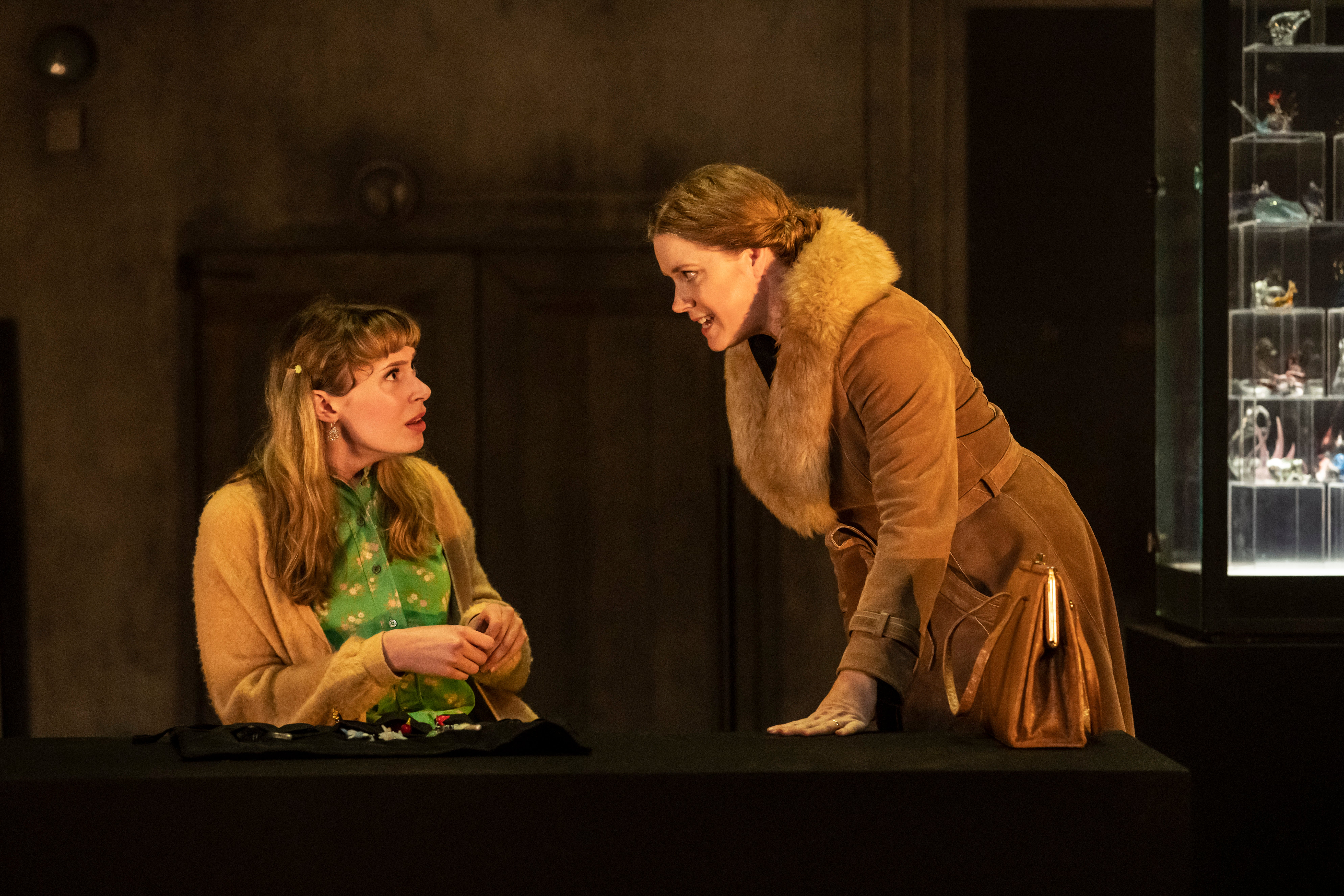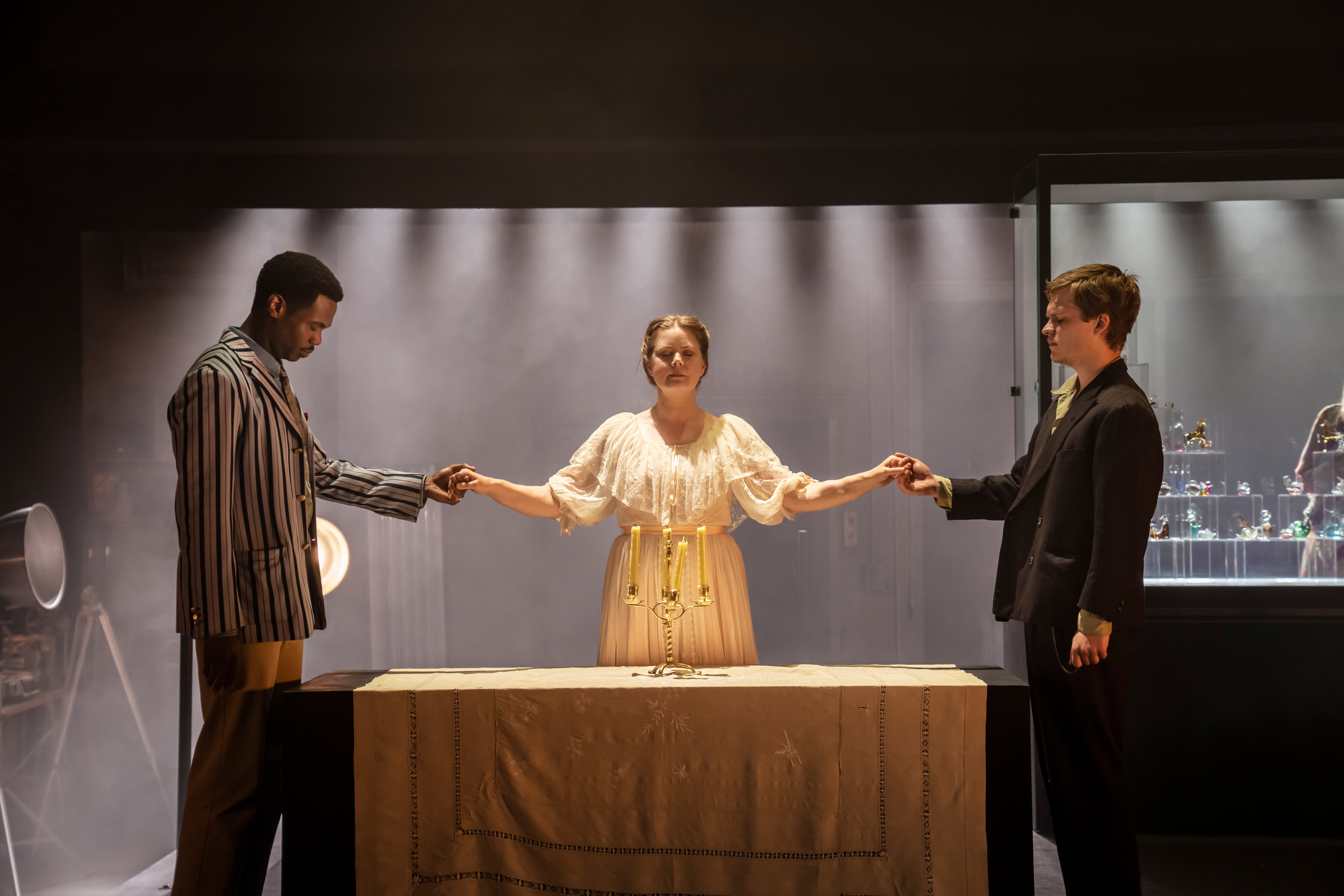
Amy Adams as Amanda Wingfield
(Picture: Johan Persson)Always arresting on screen - in Junebug, Arrival, American Hustle or as Lois Lane to Henry Cavill’s Superman – Hollywood star Amy Adams makes a muted and unconvincing West End debut in Tennessee Williams’s play. As Amanda Wingfield, a straitened southern belle overseeing disabled daughter Laura and wayward son Tom in depressed 1930s St Louis, she is often indistinct, somewhat phony and offstage for a large chunk of the action.
Jeremy Herrin’s non-naturalistic staging emphasises the radicalism of Williams’s play when it was first staged in 1944 but I’ve always found it mawkish and humble-braggy. Tom, who also narrates, is a thinly veiled self-portrait of the aspiring author whose colleagues – at the warehouse job that is clearly beneath him - jokily call him ‘Shakespeare’. Likewise Amanda and Laura are fictionalised renderings of his mother and fragile sister.
Under the guise of cringing apology he lampoons the former and slowly crucifies the latter. Though Williams wrote some of 20th century theatre’s finest tragic heroines, there’s an unpleasant undertow of misogyny to many of his texts, and this is one of the worst.

Herrin’s version takes place on an almost bare stage ringed - by designer Vicki Mortimer - with arc lights, reel-to-reel tapedecks and chairs, and crowned by a giant video screen on which flickering colours are cast. It’s intended to evoke Williams’s vision of a dream-like setting. Unfortunately, the monolithic and well-lit virtrine which contains Laura’s laboriously symbolic menagerie of glass animals, and which dominates the stage, resembles a boutique perfume counter.
The cast amble on and embrace as the audience enters, loafing about until the house lights go down. Tom Glynn-Carney, winner of this paper’s 2017 Emerging Talent award, plays the younger Tom with fretful force, while the great Paul Hilton is left histrionically roaming the boundaries as his older incarnation. You see why one actor usually plays both roles: here, neither has enough to do.

The revelation is Lizzie Annis, making her stage debut opposite an attractively confident Victor Alli as the cocksure “gentleman caller” on whom Amanda pins the family’s future. Annis has cerebral palsy and is the first disabled actress I’ve seen play Laura. That’s almost incidental to her transfixing performance, bringing nuance to the thankless, reactive role of a young woman whose hopes are raised only to be cruelly dashed.
Which brings us back to Adams. She’s not bad, just unremarkable in a role that strikes a single, clanging note of hysterical gentility throughout. Amanda exists in a state of brittle desperation, simultaneously cajoling and alienating her children. The part doesn’t offer glamour, and Adams misses what dramatic nuance there is to be found in it.
Though I don’t like this play, I can see Herrin’s production working in a small, studio setting, where the younger actors would shine. But as a West End star vehicle, it barely passes its MOT.







